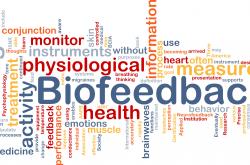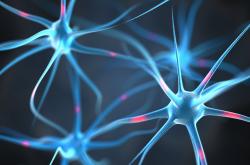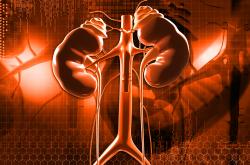Dealing With Stress And Tiredness
Chronically stressed people become tired because of the effect of stress on their adrenal glands. However, there are some useful relaxation techniques, exercises and foods that will help you manage stress and ease your fatigue.

Why stress leads to tiredness
Chronic stress (which is epidemic in modern society) leads to adrenal exhaustion and long-term fatigue. Because of the high levels of present-day stress, the adrenal glands, which are only designed to work in short bursts, become over-taxed. So, over time they produce less and less vital hormones, which are necessary for the creation of energy and we begin to experience a chronic level of fatigue. [Please seeAdrenal exhaustionfor more detail on this subject].
In order to break the vicious cycle of stress, you may need to:
- Avoid stressful behaviors.
- Know which life events are likely to cause stress and take extra care of yourself during these times [please seeStress and tirednessfor a list of stressful life events].
- Practice Relaxation Techniques, which will help your body to recover from tiredness.
- Choose foods that will strengthen your adrenal glands rather than weaken them.
Stress isn’t the only cause of adrenal fatigue; poor bowel function, lack of important minerals and vitamins, and lack of sleep all play their part.
Relaxation techniques
There are a variety of techniques, which can help you relax more deeply and more regularly. Remember that continuous stress has an effect on your body like continuous high speeds have on the engine of a car. They wear it out. Relaxation gives your body rest, which enable you to recover from tiredness.
Prayer and meditation
Although these have religious connotations, many people practice them in a broadly spiritual way, rather than tying them to specific faiths or belief systems. Meditation, in particular, has many forms ranging from Christian to transcendental and has proven benefits in stress reduction. Some people choose a mantra, or simple phrase repeated over and over again, others prefer to concentrate on what is actually happening, and consciously redirect their thoughts to a single focus.
Deep breathing
Most of us have developed the habit of breathing too shallowly. We gulp air and do not draw it deeply into our lungs and refresh our whole systems with vital oxygen. There are various breathing exercises, but almost all of them emphasise the need to breathe slowly, consciously and deeply. Here’s a simple one: breathe in for the count of five, hold your breath for the count of two before exhaling for the count of five. Try to practice this for at least ten minutes a day.
Try to breathe right into your belly. If you feel you are breathing too fast or shallowly, say ‘slow down’ to yourself. Biofeedback techniques and machines offer variations of this breathing exercise and give you feedback on how effectively you are performing.
Relaxation and re-framing
Re-framing is an effective technique allowing us to take experiences, which we feel are negative, and turn them into positive ones. Here are some for you to try:
- Lemons into lemonade
Write down all the negative instances of self-talk that you can catch yourself with. For example, ‘I am so stupid’, ‘I am fat,’ ‘I am unlovable and undeserving.’ Put them aside for a couple of days then re-frame them into the positive statement. So you would write ‘I am clever and able’, ‘I am in the process of attaining my perfect weight’, ‘I am loveable and deserving.’ Now imagine your life as it would be if all that were true. - Act as if
The brain cannot know whether a given thing is true or not. So if you act as if it is true, you generally feel much happier and this has a positive effect on your body’s physiology. So start acting as if the best thing you can imagine in life, were true. - Up in smoke
Write down all the things you hate about yourself. Now burn them. Your negative feelings can be as transitory as the burnt paper. - The Peaceful pond
Each of us has a peaceful place within. Create a personal image of something very beautiful and peaceful inside you. Some people choose water, or the sea, others prefer trees or landscape. Whatever it is, spend time there often and enjoy the calm it brings you.
Muscle relaxation
Lie down on your back and close your eyes.
Sense your feet, feeling the weight of them, then tense them and relax them. Work your way from the toes right through to the ankles.
Do the same with your legs, gradually working your way up the calves to the knees and then your thighs, sensing their weight and then relaxing them.
Now think about your buttocks and repeat the procedure. Then turn your attention to your abdomen and chest. Feel them, breathe into them.
Think about your back and neck. Feel them and let them go. Finally sense the weight of your shoulders, sense how heavy they are and then consciously relax them.
The role of exercise
Gentle exercise is crucial to regaining adrenal strength and breaking the negative cycle of stress and tiredness. Here is a simple, but powerful way of getting regular exercise. Walk out of your house every day and walk as far as you can in five minutes. Then turn round and come home. If you do this twice a day, you will be walking at least a mile. As you gradually get fitter, you will find yourself getting faster and be able to go further without tiring yourself.
Wise food choices
Eat fresh, live, unprocessed foods. If you’re tired, you need to get enough pantothenic acid (Vitamin B5). It’s found in whole grains, broccoli, salmon, legumes, liver, sweet potatoes and tomatoes, so make sure you eat plenty of these. Potassium is also important for good adrenal function. Here are some foods which are high in potassium:
Dulse | Avocados | Celery |
Kelp | Beans | Lentils |
Sunflower seeds | Potatoes with skin on | Cantaloupe |
Wheat germ | Cauliflower | Green peppers |
Raisins | Bananas | Soya beans |
Parsley | Meats | Yams |
Dates | Chicken | Mushrooms |
Figs | Carrots | Almonds |
You may also like to consider supplementing both of these nutrients and consider what additional supplements to take. [For more information please seeSupplements for adrenal support].


















Leave a comment